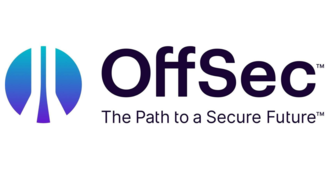
news
ZDNet Interview with Offensive Security CEO Ning Wang

Taking on the chief executive position at any company can be a daunting prospect. Every organization has a different culture, processes, and people, and in the world of cybersecurity, board leaders not only have to deal with internal management but also the ever-changing face of threats their customers face.
Offensive Security, known for the development of the Kali Linux penetration testing suite and security certification courses including OSCP Certified Professional, OSEE Exploitation Expert, and the new OSWE Web Expert qualification, became the responsibility of the new CEO Ning Wang three months ago.
Wang's journey began in China, where she grew up. After studying physics at the University of California, Berkeley, she kickstarted her career at McKinsey & Company before making the shift to startups during the .com bubble, Lynda.com, and finally serving as chief financial officer (CFO) and chief operations officer (COO) of bug bounty platform HackerOne.
The executive then joined Offensive Security, founded in 2006, as its chief executive officer after the cybersecurity firm received a capital investment from Spectrum Equity.
In an interview with ZDNet, Wang told us that her career has been based on problem-solving, whether practical or business-related, and this is an area of expertise which she has now brought to the table with her latest role at Offensive Security.
One of the first goals, Wang says, is to make sure that communication lines between board levels and general staff are improved and expanded upon, an ongoing trend which the executive has observed during her time in cybersecurity.
"Cybersecurity is no longer just the job of some security director in the company or an afterthought," Wang says. "In fact, it is on the agenda of the CEO and on the mind of the CEO and board. At HackerOne, a lot of times those initiatives were [issued] directly from the CEO and the board."
It is not just about making sure executives communicate and drive the company forward by involving staff at all levels -- Wang believes that the heart of Offensive Security's future success is also reliant on the implementation of a "try harder" mindset; not only for employees, but also for the cybersecurity industry and students at large.
Try harder, encourage, and communicate are therefore the recipe ingredients for Wang's new role.
"When I first started there was a lot of anxiety around all the change that's going to happen -- is the company culture going to vanish? Is the company and the new leader only going to worry about financial numbers and not going to care about the culture and people?," Wang explained. "But you can't grow a company, you can't grow a business, [when] you don't have people who are really motivated and really are behind your mission."
"As a CEO I try to really communicate and listen, and and I don't have the answers to all the questions but at least I can listen and facilitate more discussions."
With any change in leadership, however, there will always be resistance to some ideas. In Offensive Security's case, cloud computing has shown itself to be one such challenge.
Offensive Security, like many other organizations, relied mainly on in-house applications and systems hooked up to their own data centers. One change that Wang wanted to implement was the increased use of cloud-based services and resources. (There are still some times when on-premise solutions are most suitable than full cloud systems, however.)
"As a security company, this company has -- in the past -- hardly used any cloud-based tools," the CEO said. "Any tool we use, whether it's a conference call system, a ticketing system, or a chat system -- it's all either homegrown or it's all on-premise where we host the software."
Given the simplicity, ease of access, and resources available through cloud services such as Salesforce apps or AWS, Wang wanted to bring her new charge up to speed through modern technologies. The idea was originally "met with resistance," Wang says, but eventually, her team came around to the idea.
"Initially the idea was, 'What? no, that's not how we do things -- we are a security company," Wang explained. "The change is happening and was met with some initial resistance and fear but now people are embracing it."
Upon taking up the role, Wang says there was not a single full-time sales or marketing employee. Another personal mission was to make sure Offensive Security became well-known not just with practitioners but also the public at large.
In order to do so, the company has increased its focus on advertising and has expanded its range of online certificates including OSWE Web Expert. So far, the feedback has been positive from alumni testing out the new qualification.
Three months in, there are many changes yet to be made in the organization, with a pivot to the cloud only one of many planned. However, Wang believes that modernization and getting the firm's name out there is the key to future success.
"[Linux Kali / OS certifications] are really well-known among the practitioners, whether it is penetration testers or hackers, [but] it is not yet as well-known among the people," Wang added. "We are a very good brand when it comes to training security people so in order to do that we have to make sure we have the infrastructure in the company to be able to support that growth, and we have to make sure our products will be cutting edge."